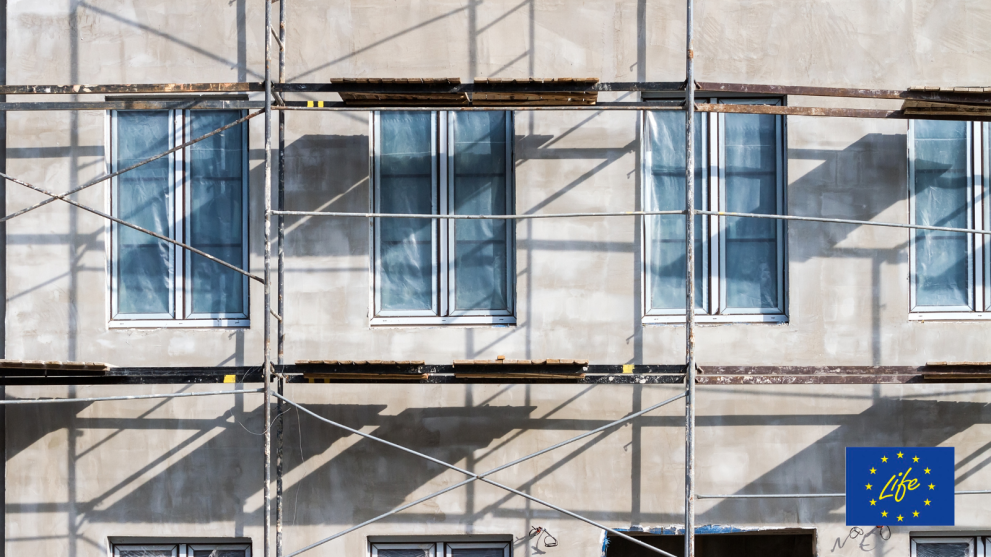
Europe’s building stocks need an urgent upgrade, and Hungary and France are no exceptions. Around 70% of the Hungary’s built environment — 4.2 million buildings — require renovation for better energy efficiency. In France, nearly 1 million residential buildings need an upgrade by 2030.
Those living and working in outdated buildings — particularly vulnerable and low-income households — pay above average energy bills. European Commission data shows lower income households in Hungary spent 14% of their budget on energy in 2023; for those in France it was nearly 7%.
Rolling out the clean energy transition requires a highly skilled construction workforce. According to the EU’s vocational education and training centre CEDEFOP, there will be nearly 4.2 million vacancies in the industry between now and 2035. ConstructSkills4LIFE and LIFE BUS2-FRANCE were set up to identify both the skills gaps and the right training to fill them.
In the EU, there is a goal for 30% of workers to be up- or re-skilled annually by 2030, as signed by partners in the Large Scale Partnership for the Construction Ecosystem. The BUILD UP Skills initiative – launched in 2011 and managed by CINEA under LIFE Clean Energy Transition – supports this objective, and has already funded more than 100 projects setting the framework for ambitious upskilling and testing solutions to make it happen. From building renovation to renewable energy integration, understanding the skills challenge was the aim of both ConstructSkills4LIFE and LIFE BUS2-FRANCE. Both projects leveraged the work supported by BUILD UP Skills 10 years ago in Hungary and France.
The two projects followed similar paths — a rebooted national platform gathering key national stakeholders and an updated ‘status quo analysis’ to map the available workforce and the existing skills gaps, followed by updated national roadmaps.
The results were clear: in Hungary, ConstructSkills4LIFE found a shortfall of 13 600 workers every year for the next decade. LIFE BUS2-FRANCE was even more blunt: 430 000 skilled workers are needed to renovate more than 900 000 residential buildings in France by 2030.
Mapping shortfalls is one thing — planning to meet them is another. Thanks to ConstructSkills4LIFE, Hungary now has an updated roadmap setting out seven key skills to equip both blue- and white-collar construction professionals in the future: energy efficiency and renewables; life cycle approach; focus on occupants; smart buildings; industrialisation, quality workplace and qualified workforce; nature-based solutions; and digital construction.
In France, LIFE BUS2-FRANCE worked with 124 organisations across four regions — Normandy Peninsula, Cambrésis, Metropolis of Aix-Marseille-Provence, and Lyon Metropolis — to produce their status quo analysis. Through a series of interviews, working groups, plenary sessions and workshops, the project has recommended 17 actions across three themes: market support for construction and renovation; talent recruitment and retention; and training development.
ConstructSkills4LIFE and LIFE BUS2-FRANCE both align to several EU directives and initiatives, including: European Climate Pact, European Green Deal, Green Deal Industrial Plan, Net-Zero Industry Act, European Skills Agenda, New European Bauhaus, Pact for Skills, and REPowerEU.
Details
- Publication date
- 22 October 2024
- Author
- European Climate, Infrastructure and Environment Executive Agency

